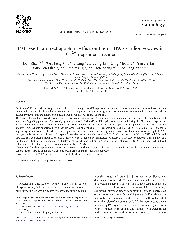摘要
Background: Previous studies suggested that platelet-activating factor (PAF) plays an important role in ischemic diseases. Apoptosis has been implicated in myocardial infarction-related cell death. The present study was designed to determine whether PAF could induce apoptosis in cardiac myocytes and the underlying mechanisms by which PAF causes apoptosis.
Methods: H9c2 cardiac myocytes were used to investigate the effect of PAF on intracellular calcium concentration, cell viability and cell apoptosis. Signaling pathway of caspase-3, cytochrome c and MAPK (ERK, JNK, p38) was determined during the PAF induced apoptosis.
Results: First, our results showed that treatment of H9c2 cardiomyocytes with PAF (0.2 to 20 mu M) caused apoptosis in these cells and the apoptotic process was suppressed by either BN52021 (an antagonist of PAF receptor) or BAPTA/AM (an intracellular Ca2+ chelator), suggesting an involvement of PAF and its receptor mediated calcium-dependent signaling. Second, we found that activity of p38-MAPK (mitogen-activated protein kinase) and caspase-3 was elevated in the cells treated with PAF, without altering activity of ERK and JNK, and that PAF-induced enhancement of caspase-3 activity was attenuated by application of either BAPTA/AM or SB203580 (p38 inhibitor). Furthermore, PAF-induced apoptosis and release of cytochrome c from mitochondria was blunted by SB203580, and PAF-induced enhancement of p38 activity was also attenuated by BAPTA/AM.
Conclusion: Our data implicate that a PAF and its receptor in triggering apoptosis occurs in cultured H9c2 cardiac myocytes via a calcium-dependent p38 MAPK activated cytochrome c/caspase-3 apoptosis signaling pathway.
- 出版日期2010-8-6
- 单位哈尔滨医科大学
